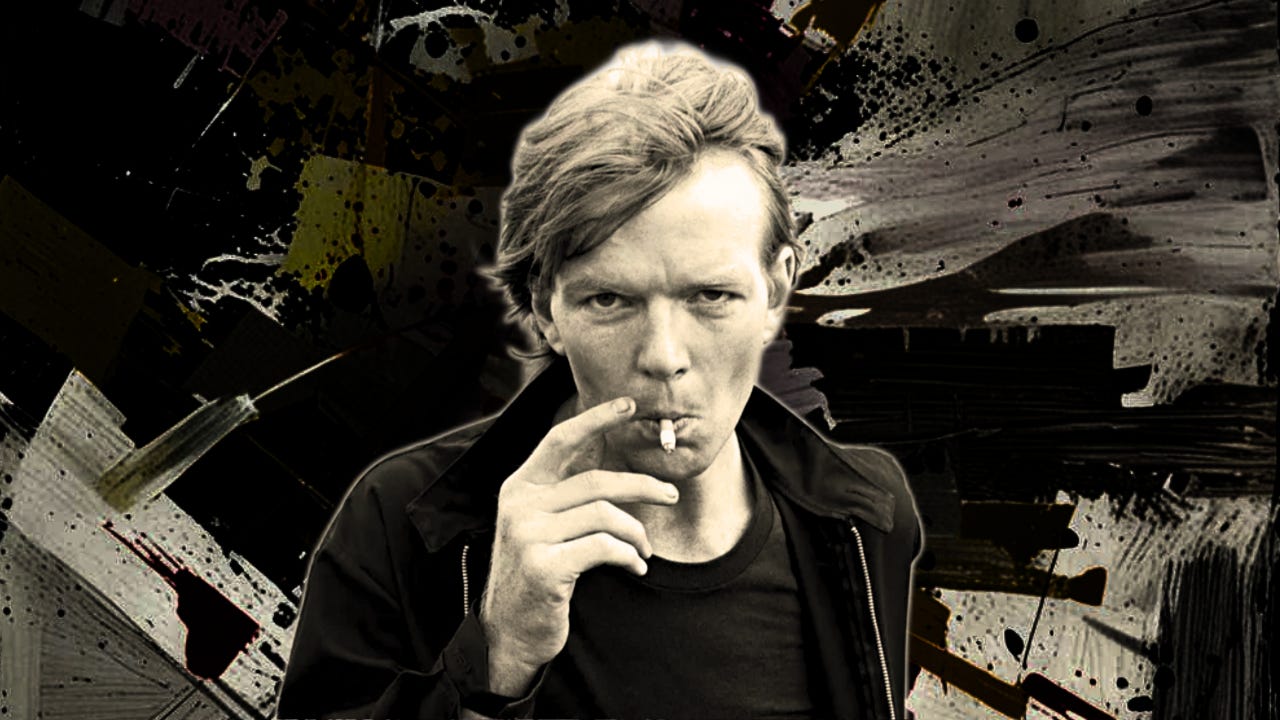When I was in my late teens, I found a lot of writing inspiration in The Outlaw Bible of American Literature. This collection of stories, essays, and literary oddities, published in 2004, exposed me to an array of exciting authors and artists I’d never read in school, people like Kathy Acker, Jim Carroll, Hunter S. Thompson, Charles Mingus, Philip K. Dick, Lenny Bruce… This 920-page tome is marketed as “a primer for generational revolt and an enduring document of the visionary tradition of authenticity and nonconformity in literature.”
I think about this book every time I get frustrated by the sense that modern literature is almost universally bland and safe, that modern writers are—as a rule—distinctly not outlaws.
A lot of things are happening at once. People aren’t reading as much anymore. The mainstream publishing industry has been overtaken by progressives and is also responding to the reading habits of increasingly female audiences. Meanwhile, people who would otherwise become radical authors are instead finding success expressing themselves through mediums that are more receptive to larger-than-life personalities. Why bother writing a novel that will inevitably be turned away by the literary gatekeepers when you can build an audience through tweeting, Tik-Toking, YouTubing, etc.
But all of this is not to say that literary outlaws have entirely vanished. You just won’t find them in bookstores or at your local library. You have to find them online and you have to be willing to buy self-published books on Amazon with questionable cover designs. And you have to be willing to accept that (by all accounts) literary outlaws today (those who upset the contemporary establishment and challenge mainstream norms) are largely rightwing-coded, rather than the literary outlaws of decades past, who were largely leftwing-coded.
Bronze Age Pervert (BAP) is the archetype of this new type of literary outlaw. His first book, Bronze Age Mindset, is a self-published, cheaply designed monstrosity. If it were ever showcased at a bookstore, it would stand out as the ugliest book on display. Yet it’s impossible to imagine a bookstore actually carrying this thing. It’s too unhinged, too transgressive, too dangerous. Written in the style of a caveman philosopher, the book is an unapologetic screed against modernity, technology, and liberal values. As the name of the book suggests, BAP wants to return the world to the time of the Ancient Greeks.
I’m not here to defend BAP or his subversive, backwards-looking ideas. In fact, I’ve written previously about how his ideas are almost certain to lose in the end. But I do admire the fact that, through a memorable literary project and an off-the-wall online persona, he has managed to terrify both the liberal establishment and the conservative movement. A true literary outlaw! He also manages to inspire quite a lot of literary gossip, including one of the most freewheeling articles ever published in the Atlantic.
BAP is a rare figure, culturally and in the literary world. But there are numerous writers of various levels of influence who fall into the same category of rightwing-coded outlaw. These include:
, , , , and , to name a few.Are there any leftwing-coded outlaws writing today? I’m sure there are but I have not stumbled across them. There are plenty of “rebels” on the left who talk about sex, drugs, etc. in the style of Chuck Palahniuk or John Waters. But sex and drugs are now embraced by the mainstream, so it’s not really possible to be controversial to the point of achieving outlaw status when you aren’t offending the institutions.
More often than not, controversial figures who come from the left are essentially the inverse of an outlaw: they offend the normie masses while keeping entirely within the good graces of the traditional publishing world.
Dr. Ally Louks is a fascinating example of this. Recently, Louks went viral for posting a picture of herself with the news that she had just received her Ph.D. from Cambridge. Her thesis, “Olfactory Ethics: The Politics of Smell in Modern and Contemporary Prose,” absolutely enraged anti-woke commentators online. Tim Pool in particular lost his mind over this, claiming that this type of thesis was the reason why education has failed and the West is doomed.
This makes Louks a type of literary rebel, but she’s an outlaw inverted: rather than upsetting the institutions to the pleasure of the masses, she did the reverse. She upset the masses (well, some of them—I appreciate her thesis, for what that’s worth) while being a product of the institutions.
It seems likely the major publishing houses will never again publish writers who threaten to upset institutions or offend liberal values. They’ll carry on publishing authors that hold the line on whatever worldview is in vogue in academia, and they’ll probably sell more books for it. This just makes the world of the small press and the indie author all the more important. Whether we realize it or not, those of us in this space are collectively compiling the next edition of The Outlaw Bible of American Literature. Let’s make sure it’s worthy of the name.






Most literary “outlaws” are prominent men. Most follow a tradition of “bad boy” private school Brits. America’s Henry Miller to Jack Kerouac to Carroll’s Basket Ball Diaries celebrate the perverse often self-obsessed young man. charismatic bad boy lit and music performers like Dylan are known. Hey Laura Nyro? Bad girls in lit often die young, like Plath, performers do better. As the author of The Anarchist’s Girlfriend” and “Paradise Gardens,” collected in libraries at Stanford and Columbia and plays considered “too radical “ for a woman to write—i know being a lit bad girl is still taboo. Gay women have small press and niche followings. women of color get a shot, though not as accepted as bad girl George Eliot or Mary Shelley in their time. Colette pulled it off. But that’s France.
Today? Bad girls are squashed youmg.
In Europe, we still have some outlaws like Houellebecq